Let’s find out whether a lectin-free diet is the new gluten-free diet, and more importantly, does it live up to its lengthy claims?
Many dietitians predict that 2017 is the year of the “free from” diets. Sugar-free, dairy-free, lactose-free, gluten-free; the list is endless. These are only some of the most common ones you have likely heard of or seen in your local grocery store. More recently, there have been controversies surrounding the gluten-free diet and whether it’s good or bad for you; a topic of popular debate. Eating foods devoid of gluten has health claims including shedding belly fat, weight loss, cleared skin, improved digestion and alleviated GI distress, just to name a few. However, there is a very new “free-from” diet which is said to be the “new gluten-free diet”. The lectin-free diet involves eliminating foods containing lectins for optimal health, particularly for relieving you of your digestion woes. This has gained much attention in recent years, especially with the release of The Plant Paradox by Dr. Steven Gundry, who highlighted that the “secret” to healthy living and weight loss was the removal of lectins from your diet.
What are Lectins?
Just like gluten, lectins are a protein as well. They are found in most plants and are “carbohydrate-binding” proteins with a defence mechanism allowing them to protect the plant against pathogens such as fungi, insects, molds and diseases in their environment. Lectins are classified as “agglutinins” because of their ability to agglutinate (or tightly stick to) cells and cause cells to stick to one another. Since the majority of lectins are both heat and digestion-resistant, this has led many to believe that they enter our bloodstream to wreak havoc within our bodies.
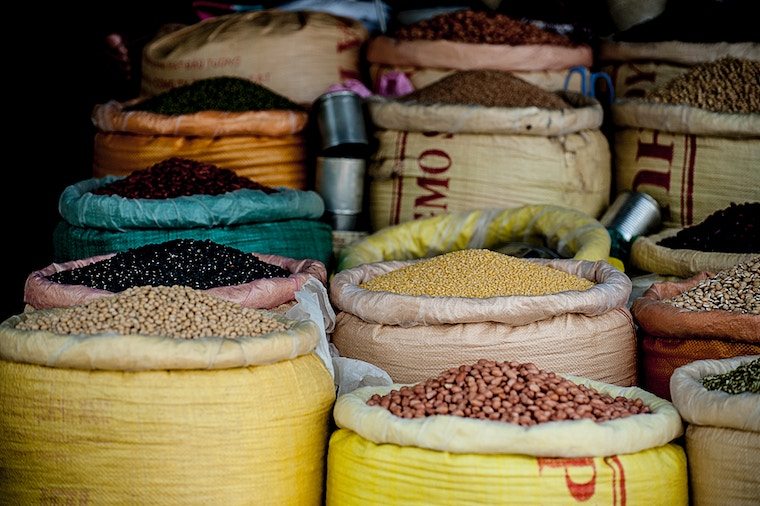
Lectins are considered non-digestible “anti-nutrients” in humans because they bind to the cell membranes of various cell types, passing through the gut unchanged. However, this does NOT mean they are necessarily bad for you, nor should you eliminate all foods containing them. Even the “anti-nutrient” fiber was once perceived to be of little benefit because it could not be digested, but is now shown to be a fundamental part of a healthy diet. In general, there are many kinds of anti-nutrients found in plant foods such as tannins, phytic acid and oxalic acid among many others, that may interfere with the digestion and absorption of nutrients, but not with any significant adverse effects on our health. If we were to remove all foods containing any sort of anti-nutrient, we would not have many options to choose from.
Where are lectins found?
Lectins can pretty much be found in almost everything – both plant AND animal sources; a wide range of foods including certain types of fruits and vegetables (tomatoes, eggplant, peppers, potatoes), legumes, along with egg and dairy products. Some foods are naturally higher in a variety of lectins such as cereal grains, legumes (lentils, beans, peas) and nuts, where they are mainly concentrated in the skins and seeds. Kidney beans, soybeans, almonds and black beans are all known to contain significantly greater amounts of lectins. If you’re a vegan or eat primarily a plant-based whole food diet, you know that this does not leave much food on the table if you were to go lectin-free. Especially amidst this age of chronic disease where rates of obesity and diabetes are at an all-time high, which is believed to be contributed (or aggravated) by a low-fiber, high sugar and fat, highly processed diet, having anti-lectin advocates recommend avoiding many plant foods seems a bit too extreme, let alone inappropriate.
So what does the research say about lectins affecting our health?
Similar to the gluten-free craze, there’s a lot of hype surrounding the lectin-free diet trend, with proposed health benefits including elimination of digestion issues, increased energy, weight loss, as well as reduced cravings, headaches, body aches and adult acne. Most research has focused on the impact that lectins have on digestive health, immunity and inflammation, obesity, and cancer.
Gut Health
Many anti-wheat advocates suggest that a specific lectin called wheat germ agglutinin (WGA) (concentrated mainly in the wheat germ of whole wheat) is involved with negative health outcomes due to binding of the epithelial gut wall. This is said to damage gut cells and the intestinal lining, leading to leaky gut syndrome. High concentrations of lectins consumed and overexposure to them can possibly cause damage to the gut wall and increase gut permeability, resulting in GI irritation, hindered nutrient absorption and obstructed gut defences against bacteria and other pathogens due to their “anti-nutrient” binding properties. This binding to human cells is also said to pave the way towards development of autoimmune diseases and induce pro-inflammatory immune responses, which will be further discussed in the later section (Immunity and Inflammation). Even more so, when lectins are consumed in large amounts by individuals with non-functioning enzymes, they may cause serious damage to the intestines. According to Dr. David Jenkins, if the starches in legumes and grains have not been cooked, the lectins are left unbound and are therefore free to come in contact with our intestinal cells, which can possibly lead to food poisoning symptoms. Despite this, the evidence we have is still very scarce since most findings regarding the impact of lectins on GI health are derived from animal models and in-vitro studies; thus lacking current human clinical trials.
It has also been suggested that lectins elevate levels of undesirable bacteria such as E. coli, Lactobacillus lactis and Streptococcus sp. in outdated rat studies, but there is simply not enough research supporting the notion that lectin changes gut bacteria composition or lead to imbalanced bacterial growth. With limited evidence, others claim that high lectin consumption is responsible for causing various diseases related to GI-irritation, particularly in highly sensitive individuals with lectin intolerances such as irritable bowel syndrome (IBS) and inflammatory bowel disease (IBD). Furthermore, an old study performed on humans proposed that there is a “causal relationship” between intake of lectins and celiac disease. Researchers found that when given WGA, immunoglobulin levels indicating an immune response were significantly greater in children with celiac disease compared to those without celiac disease and those who were on a gluten-free diet. Therefore, it’s been argued that WGA lectins may be particularly harmful for patients with celiac disease. However, a review investigating the impact of lectin in wheat germ found that the overall science does not support this. To date, there have been no randomized controlled trials conducted in vivo on humans when evaluating the impact of WGA in normal amounts present in foods that have also been heat-prepared.
Instead, various studies have suggested many positive health benefits regarding whole-wheat foods. For that reason, the potential negative effects of WGA should not be enough of a reason to advise people to stop eating foods made from whole wheat. Whole grain consumption, as presented by the American Society for Nutrition (2010), has been stated to benefit GI function and protect against disease such as GI cancers and inflammation, while enhancing immune support. Furthermore, both cross-sectional and cohort studies, as well as meta-analyses, have displayed trends where increased intakes of whole grain foods rather than refined grains, has been linked to reduced body fat, lowered risks of obesity, type 2 diabetes, cardiovascular diseases and certain cancers. Contrary to lectin-free health claims, whole grain intakes have been associated with decreased inflammation, although a causal effect is yet to be determined. The health benefits of whole grains are largely attributable to the fiber and anti-inflammatory properties of phytochemicals found in the outer bran and wheat germ. With strong, consistent and current scientific research backing up these health claims, it is wiser to look at the context of the entire food rather than singling out lectins as the culprit to all our problems. At present there is no evidence recommending that healthy people should stay away from whole grain foods or lectin-containing foods.
Toxicity
The fear and concerns surrounding the toxicity of lectins and its inflammatory properties began with a notable incident in history, where raw kidney beans caused numerous acute side effects including vomiting, severe nausea, diarrhea, abdominal pain, muscle aches, and inflammation. The specific type of lectin found in uncooked or undercooked kidney beans is called “phytohemagglutinin (PHA)” which results in these lectin-poisoning symptoms. Negative health consequences have also been observed in rats where they experienced bacterial overgrowth and reduction in their intestinal wall lining when given high concentrations of PHA and WGA. Raw kidney beans in particular have the highest lectin concentration, from 20,000 to 70,000 hau (hemagglutinating unit – a unit measuring toxicity), whereas completely cooked versions contain as little as 200 to 400 hau. For that reason, legumes in general, which include beans, peanuts and soy are considered to be “toxic foods” if eaten raw. In past studies, the PHA in red kidney beans may have been the cause of allergic reactions in susceptible individuals, although their role is still unclear. However, adequately/fully cooked kidney beans are nutritious and safe to consume. They are rich sources of plant protein, high in both insoluble fiber and resistant starch which generally assists with weight loss and improved digestive health, rich in essential vitamins and minerals, and they are a complex carbohydrate source that is low in glycemic index (GI). The extent to which lectins pose a threat to human health is largely dependent on the specific type of lectin, the dosage, method of preparation and the individual’s sensitivity/tolerability to them. Humans typically cook legumes before consumption rather than eating them raw, so having them in your diet should not be an issue with normal food preparation.
Immunity and Inflammation
With the possibility of lectins having the potential of deteriorating the integrity of intestinal walls in certain people, many suggest that there is increased risk of autoimmunities. This is due to repeated/consistent exposure of dietary lectins increasing gut permeability, which enables unwanted materials to penetrate the gut more easily. Lectins are believed to contribute to the production of antibodies attacking lectins themselves. Researchers have theorized that due to the “binding ability” of lectins to various types of cells, they would be mistakenly perceived as pathogens and induce an immune response, attacking the lectins and bound tissue while damaging some organs. Eventually this would “give way to autoimmune diseases” such as rheumatoid arthritis, and therefore individuals with this disease are advised to avoid lectin-containing foods. Despite this scientifically-sounding explanation, most lectin research is extremely limited, with majority of studies using animals or in vitro methods. Some cases include the observation of pro-inflammatory immune responses when WGA was administered to animals, and increased immune responses within celiac disease patients. However, after extensive re-evaluation the results were found to be insignificant. Regardless, human trials are scarce and the influence of lectins on the immune system requires sound research.
Obesity and Weight loss
Lectins are thought to increase synthesis of fat cells based on limited studies done in vitro. It’s been hypothesized that increased dietary lectin causes weight gain by inducing leptin resistance. Leptin is known as an important hormone with the role of regulating energy intakes as well as expenditures. Leptin resistance or malfunctioning of leptin receptors, would interfere with satiety signals sent by the brain, increasing the likelihood of overeating and the development of obesity. However, no epidemiological studies or clinical findings support this hypothesis.
Cancer
Despite all these horrendous claims lectins have been associated with, they are not all bad. In fact, they may have a number of potential health benefits and a diverse range of clinical applications. Even with limited studies, lectin research on plants has displayed possible anti-cancer properties by improving function of the immune system and reducing tumour growth. For instance, studying patients with colorectal cancer showed lowered relative risk of developing the cancer with plant lectins. Other beneficial functions of specific lectins include its ability to modulate inflammation and stop cancer growth and migration by inducing apoptosis and autophagy (cell death). Lectins may even be used as malignant tumour biomarkers for early detection of cancer. Although there are promising results shown by in-vitro and in-vivo research, more clinical trials are required to understand the mechanisms behind this for therapeutic purposes.
Other issues
Some others have proposed that lectins are also the cause of UTIs (urinary tract infections), higher rates of anemia (especially in developing countries where lectin consumption is greater), chronic fatigue syndrome, abnormal cell growth, insulin resistance, and Parkinson’s Disease. To add, high lectin levels in the diet is believed to disturb glucose metabolism by blocking insulin and glucose receptors on cells. For all these claims, it is still way too early to jump to any of these conclusions without strong scientific support.
What would a lectin-free diet look like?
An estimated 30% of our food is considered to have a significant amount of lectins in them. Lectins are found in many of our beloved plant-based foods, so a diet FREE of lectin would look a lot less colourful, to say the least. Certain ripened fruits are recommended on this diet because of their lower lectin-content, and in Gundry’s Plant Paradox, he further suggests consuming white rice instead of brown rice because the outer coating is “full of lectins” and causes GI distress. If you ask me, these practices seem like pretty controversial measures that don’t align with evidence-based nutritional guidelines promoting increased intakes of fruits, vegetables and whole grains.
Judging by this mighty list of exclusions, we can automatically identify this as a fad diet. Generally, foods with the highest concentrations of lectins start with legumes, then nightshades, dairy, and finally grain products.
Foods Eliminated from the Lectin-free Diet
- Legumes (e.g. all beans – soybeans, kidney, pinto, navy, lima, fava, wax, castor, string, mung, field and black beans; peas, peanuts and peanut-products, lentils – pretty much our beloved Canadian pulses!)
- Grains (e.g. wheat, rye, malt, oat, barley, rice)
- Seeds (e.g. sunflower, sesame)
- Most nuts (e.g. peanuts, almonds, hazelnuts, cashews)
- Nightshade Plant Produce (e.g. tomato, peppers, hot chili peppers, potatoes, eggplant, goji berries)
- Other Vegetables (e.g. beets, cucumbers, rhubarb, turnips, zucchini, garlic)
- Most fruit (e.g. pomegranate, grapes, banana, plums, papaya, currants, watermelon)
- Dairy products (e.g. milk, yogurt, cheese, chocolate)
Foods Allowed on the Lectin-Free Diet
- Animal Proteins/Meats (e.g. beef, chicken, fish, eggs)
- Cruciferous Vegetables (e.g. broccoli, cauliflower)
- Certain Fats (e.g. butter, olives, olive oil, avocados)
- Some nut varieties (e.g. walnut, pistachios, pecans, pine nuts)
- Miso, herbs/seasonings (e.g. except chili flakes)
*If an individual is aiming to only reduce intake of lectins, the list would allow more lower-lectin options in the diet including:
- Vegetables (e.g. onions, mushrooms, broccoli, bok choy, cruciferous vegetables such as cauliflower, broccoli leafy greens, pumpkin, squash, sweet potato, carrot and asparagus)
- Berries, citrus fruits, pineapple, cherries and apples
A lectin-free lifestyle entails avoiding many excellent sources of nutrient-dense whole foods on a daily basis. This diet looks very low in fiber, meaning that you may have to go through the inconvenience of taking a supplement to regulate your bowel movements. It’s likely that processed wheat, refined carbohydrates, meat and seafood intakes would increase by reducing consumption of a variety of higher-lectin foods.
The Bottom-line: Should you go on a lectin-free diet?
Despite extreme recommendations by anti-lectin advocates, “going lectin-free” is not going to solve your underlying health issues. If anything, being fixating on one compound may be doing more harm than good, and may even compromise your long-term health and fitness goals. This is because you would be consuming much less natural, whole foods in your daily diet, which are associated with healthier lifestyles and reduced rates of chronic diseases. Most foods with lectin are rich sources of fiber, vitamins, minerals, phytochemicals, antioxidants and many different kinds of beneficial components that far outweigh any possible risks. Currently, lectin research is limited regarding its impact – both good and bad – on humans. Yes, dietary lectins can be toxic in excessively large amounts, but us humans do not normally consume doses high enough to be of any real concern. Eating lectin-rich foods such as raw legumes, beans and grains in its raw form can result in harmful side-effects, but we typically have them cooked anyways. Some may suggest trying to exclude certain foods such as nightshade plants to help digestive issues, but scientific research to date has not been able to prove this.
Even with an abundant amount of lectins in our foods, there really is no reason why you shouldn’t be eating them just to avoid lectins. An effective way of inactivating lectins is by heat-processing, which denatures these proteins through familiar methods such as cooking and baking to get rid of lectins’ binding ability. Therefore, fully cooked or canned beans and other plant foods higher in lectins can be safe to consume. Soaking your grains, beans and legumes overnight and draining before cooking can remove almost all lectin content. Microwaving and boiling will also help decrease levels of lectin. You can try fermenting high-lectin foods, as the production of bacteria would lower lectin concentrations by digesting these anti-nutrients while increasing digestibility of the food itself. Another method is sprouting grains, seeds, and legumes. Generally, the longer the sprouting duration, the more deactivation of lectins will take place. However, germinating legumes is still not considered as effective than the other methods. Pressure-cooking is another popular way to destroy lectins in specific foods including squash, sweet potato and beans. Although the lectin found in foods will not be 100% eliminated (but drastically so), these are all useful procedures for bringing down the lectin to a consumable level for prevention of potential side effects in most people. Majority of experts in the field of nutrition indicate that lectins are not likely to pose any significant risk to the health of humans as long as they are heat-treated.
The stronger scientific evidence we have that is very apparent in this day and age is that populations adopting plant-based diets tend be healthier and live longer (and yes – their diets include a ton of lectins!). Overall, the effect of lectin exposure may be very context-dependent, varying according to the overall diet, dosage and individual. And if you haven’t already figured it out, this diet appears quite restrictive and unsustainable in the long-run.
Contribution by Rachel Shim, RD2B
Editing by Sofia Tsalamlal, RD, MHSc
Updated on January 19th, 2022

Abbey Sharp is a Registered Dietitian (RD), regulated by the Ontario College of Dietitians. She is a mom, YouTuber, Blogger, award winning cookbook author, media coach specializing in food and nutrition influencers, and a frequent contributor to national publications like Healthline and on national broadcast TV shows.
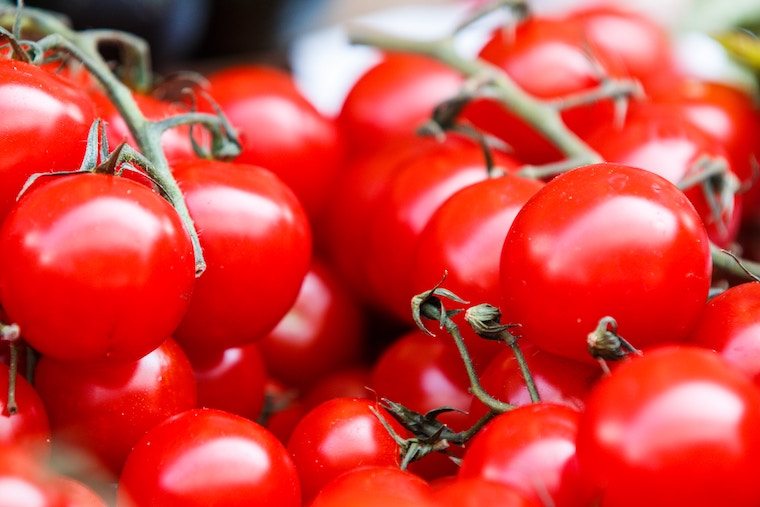
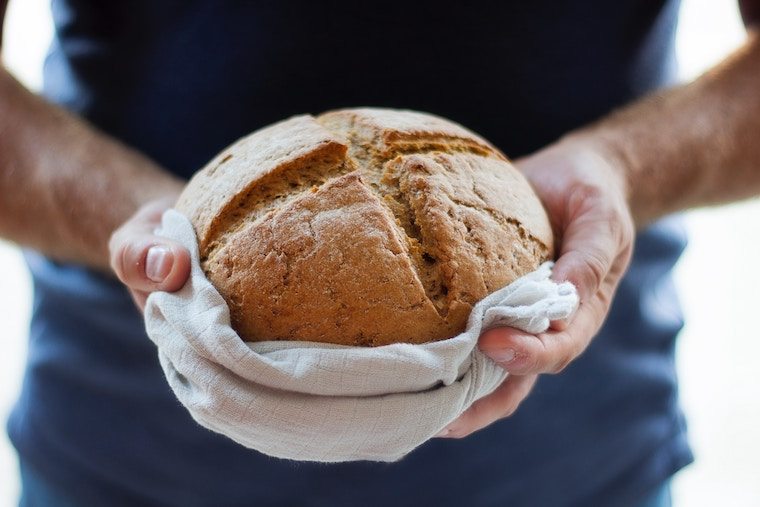
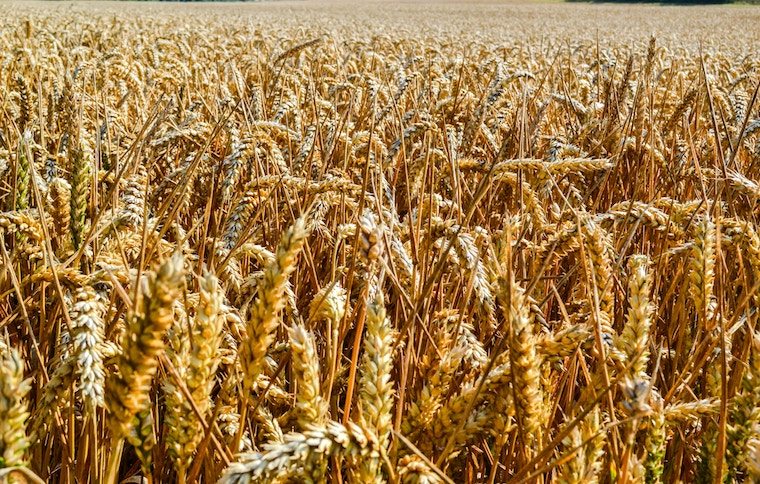

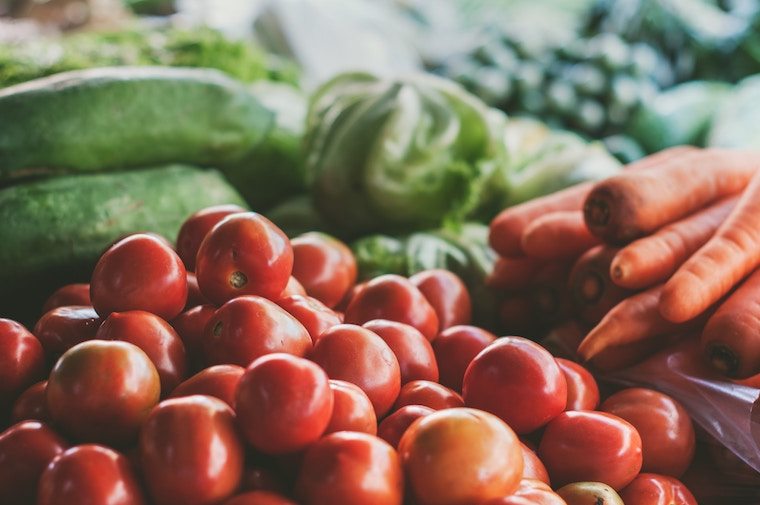

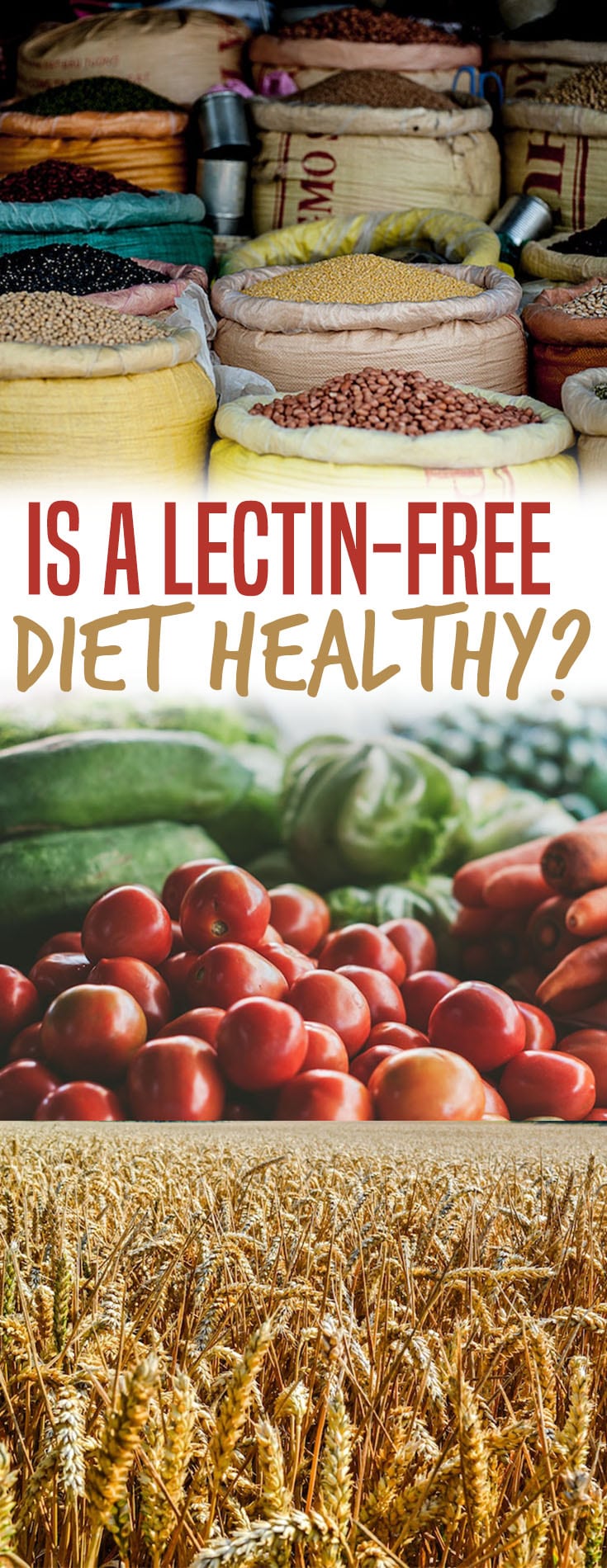




Kevin says
Your article seems to be well researched. And it was very informative, enlightening and has given me enough good reason to take what some doctors say with a grain of salt (such as the doctor that recently appeared on Morning Joe) and even one of my own doctors (who many of my students (whom are also doctors) that question his views on nutrition regarding leaky gut syndrome). I am going to spend more time looking at what you write. Thanks for the well written piece and I think I am going to spend more time listening to you and reading more of what you have to say regarding nutrition.
Abbey Sharp says
Thank you!
Mark says
Respectfully, your readers will only know the truth if they read the book The Plant Paradox for themselves. Even better, The Plant Paradox Quick and Easy 30 day plan
Abbey Sharp says
Thanks for sharing Mark.
Pam M. says
My life has been transformed by following the Plant Paradox! Massive chronic inflammation – gone Daily severe gut pain – gone Hashimoto’s thyroid disease- improved greatly.
Read the book & see a lot of the above information has been skewed.
Coralie Edwards says
Doing this diet the way Dr Gundry explains in his book and using all the recipes available in the many support groups make this an amazing healing way of eating. Many of the things you state are not allowed are allowed , it just depends on preparation and cooking….eg dried beans etc are allowed if presoaked and pressure cooked. Pressure cooking destroys the lectins.
You cannot really comment until you have read the science, read the book, read the thousands of reports from people that have been helped by Dr Gundry and his research, and tried it for yourself!
There is so much to eat, a new world of cooking that is healthy and healing and tasty, you would never go back to the old ways! And never ever have whole groun anything again! Unless you live in France or Italy where grains are grown differently! Oh and milk and dairy is allowed if it’s A2, goat or sheep or buffalo!
On the rare occasions we do when out somewhere our body lets us know!
By the way gluten is a lectin too. If people don’t have time to read the books there are plenty of YouTube videos and Facebook groups that will help out!
This is definitely not a fad diet, and since my husband is thriving on it after bowel cancer, we will be eating this way for the rest of our lives !
Abbey Sharp says
Thanks for sharing love
Julie says
I’m finding that people writing on lectins are missing a major point in Gundry’s book: the elimination diet. He doesn’t suggest that people completely give up eating all foods containing lectins. He suggests that people who aren’t well and can’t get to the bottom of it try going off all the lectin-containing foods, then add them back in one at a time. If something causes a flare-up of symptoms, then that’s a food to avoid.
As someone who went from crippled up with unexplained joint pain and then became pain-free three days after giving up gluten (before it became a “fad” to do so), I don’t see the harm. What if someone is unwell because they eat a lot of nightshades, for example? The elimination diet is a way to find out.
Abbey Sharp says
Hey Julie. I do agree that elimination diets can be effective at zeroing in on what the root cause of the pain is, however this diet is also targeted to people that have no preexisting issues and that eating these nutritious foods can be harmful and I don’t believe that is the case. Thanks for your comment!
mick thorpe says
you list walnuts as both good and bad. as far as lectins are concerned they are good.
Abbey Sharp says
Hi Mick, thanks for pointing that out! I’ve made the changes.
Sharon S says
This article is pointless since your claim is that there’s not enough evidence that eating lectin free has provable benefits. There many viable studies which have been published and show the negative biological effect of eating a diet high in lectins. Another misinformed blogger who doesnt research before writing.
Abbey Sharp says
Hi Sharon, did a ton of research and included those studies and many of the studies had weak study designs. Thanks for your comment.
Kevin says
Yeah, sorry… I have to comment on your comment. There are many so-called “viable” studies that are INCONCLUSIVE. Here’s the thing. I read plenty of medical studies and edit them weekly for doctors and medical students prior to publication.
And I have heard time and time again that more research is needed. Most of the published medical articles I have read or edited make such statements. The doctors themselves are reluctant to say that something is proof and are more likely to say that their study suggests or may suggest that… blah, blah, blah. The bottom line is that it takes a hell of a lot of collective research to be conclusive! If we want to talk about smoking is bad, then yes there are plenty of studies and they are collectively conclusive. If we want to talk about climate change due to human activity, then the studies that have been collectively done are overwhelmingly conclusive (that we are in a lot of trouble). But, regarding the above article and leaky gut syndrome, I have to agree with the author (and I have heard likewise from plenty of other doctors) that these studies are INCONCLUSIVE. There is just not ENOUGH evidence to be conclusive. So, basically SMACK to your statement (Sharon S. !!!). I think that last sentence in your statement was seriously asinine.
Margaret says
I’m type I diabetic with Celiac disease and I can assure you, not eating lectins has relieved me of a host of inflammatory symptoms. Symptoms of liver disease, rheumatoid arthritis and lupus are no longer active. Clinical studies are only conducted when there’s a vested interested by a specific group, meaning, there’s money to be made. When it comes to offering an opinion about how and what affects different people, perhaps you can inquire with people who actually have autoimmune diseases before you make a claim that the new “diet” is bs because it doesn’t suit your narrative. The truth of the matter is, we’re biodiverse individuals with very different needs. Nightshades are very harmful for people who suffer from autoimmune diseases. But I guess you don’t know that, either.
Abbey Sharp says
Thanks for sharing Margaret. Glad you found a diet that works for you. This post was based on expert opinion based on countless studies. It wasn’t based on my narrative.
Rebecca says
Thanks for sharing! I’d never heard of a lectin free diet before, but it sounds like no fun!
Abbey Sharp says
yeah no fun at all…
Carmy @ carmyy.com says
Man that just got complicated! I didn’t even know what lectins were! Great informative post though! I learnt a lot 🙂
Abbey Sharp says
So glad! Thanks girl 🙂
dixya @food, pleasure, and health says
i have had few people people ask me about this..and now i can direct them here for more comprehensive post. thank you for putting all this work.
Abbey Sharp says
amazing! Thank you!
Rachel says
This is a really informative post. I have an autoimmune disease but I love my fruits and veggies a little too much.
Abbey Sharp says
yeah, that’s a hard one to restrict. Thanks Rachel
Deborah @ Confessions of a mother runner says
I did not realize that this was a thing but as a vegetarian, I don’t see me going this route
Abbey Sharp says
Yup, so much restriction